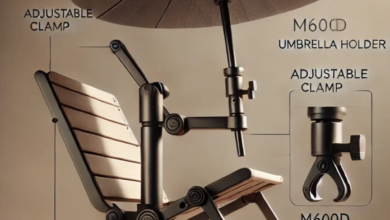MIAM and Mediation in Derby: A Guide to Resolving Family Disputes

Introduction
If you’re navigating a family dispute and considering legal action, you might have heard about the Mediation Information and Assessment Meeting (MIAM). It’s a necessary step in family law cases in the UK, designed to encourage people to consider mediation before pursuing the courtroom route. Mediation in Derby, just like in the rest of the UK, can be a highly effective way to resolve conflicts in a more amicable, cost-effective manner. In this article, we’ll explore the purpose of MIAM, the mediation process, its benefits, and how to find the right mediator in Derby.
What is MIAM?
MIAM stands for Mediation Information and Assessment Meeting. Before starting court proceedings in family law cases, individuals are required to attend this meeting to explore whether mediation is a suitable option to resolve the dispute. The purpose is to inform the parties involved about the benefits of mediation and whether it can help them come to an agreement without going to court.
During MIAM, a qualified mediator will assess whether mediation could be an appropriate way forward for the individuals involved. This meeting is not about resolving the dispute directly but about exploring the options for resolving it outside of the courtroom.
The Purpose of MIAM
The core objective of MIAM is to provide individuals with the opportunity to consider mediation before heading to court. It’s a legal requirement for most family disputes involving children or financial issues, such as divorce or child custody. MIAM serves as a crucial step in ensuring that all options are explored before pursuing potentially lengthy and expensive court proceedings.
MIAM aims to reduce the emotional toll and financial costs often associated with court cases by encouraging amicable discussions between the parties involved. It’s a process that fosters communication and promotes the best interests of everyone, particularly children, when applicable.
Mediation in Derby
Mediation is a structured process where a neutral third-party mediator helps individuals in conflict come to a resolution. In Derby, mediation is widely used to settle family disputes, including divorce, child custody, and financial disagreements. Mediation Derby can be highly beneficial, as it provides a peaceful and confidential environment for resolving conflicts without the need for a public court trial.
The Role of a Mediator
A mediator is a trained, neutral professional who facilitates communication between the parties involved. Their role is not to take sides but to help individuals express their concerns and find common ground. The mediator may suggest potential solutions, but they cannot impose decisions on the parties. Their goal is to help the parties come to a mutually agreed-upon resolution.
The mediator’s role in Derby is to ensure that both parties have the opportunity to speak freely, clarify their positions, and work toward a fair outcome. This can be especially valuable in situations involving high emotions or complicated family dynamics.
Benefits of MIAM and Mediation
There are several key benefits to attending a MIAM and participating in mediation rather than heading straight to court.
Reducing Conflict Through Mediation
One of the primary benefits of mediation is its ability to reduce conflict. Court proceedings can often intensify disputes, leaving parties with long-lasting emotional scars. Mediation, on the other hand, encourages communication and collaboration, helping individuals reach solutions in a less adversarial environment. This can improve the relationship between the parties, especially when children are involved.
Legal Requirements for MIAM
In most cases, individuals must attend a MIAM before applying to the family court for a dispute involving children or financial matters. This legal requirement ensures that all parties have considered alternative dispute resolution methods before turning to the courtroom. The only exceptions are cases involving domestic violence or when one party is unwilling to engage in the process.
Attending MIAM is a proactive step in resolving family disputes. The mediator will assess the situation and determine whether mediation could help, allowing the individuals involved to decide if they want to proceed with it.
Mediation Process in Derby
The process of mediation in Derby follows a structured approach, providing both parties with a clear path to resolution.
The First Meeting
The first meeting is a key component of the mediation process. During this session, the mediator explains the process, sets the ground rules, and ensures that both parties understand the objectives of mediation. The mediator also gathers relevant information from both parties, allowing them to assess whether mediation is suitable for resolving the dispute.
This initial meeting is confidential, which allows both parties to speak freely without the fear of their statements being used against them in court. It’s an opportunity for individuals to discuss their concerns in a neutral space and to see if they can find common ground.
The Mediation Agreement
Once mediation sessions are underway, the goal is to reach a mutually acceptable agreement. This could involve arrangements for children, financial settlements, or other aspects of the family dispute. The mediator helps both parties negotiate and draft an agreement that they both feel comfortable with.
Once an agreement is reached, it is often written down and signed. This agreement can then be used in court if needed, but in many cases, mediation leads to a resolution that makes court action unnecessary.
Post-Mediation Steps
After mediation, if both parties are satisfied with the outcome, the agreement can be formalized. If children are involved, the agreement may be submitted to the court to be made legally binding. If no agreement is reached, the parties may choose to pursue other legal options, including going to court.
The post-mediation process involves ensuring that any agreements are implemented and that both parties are adhering to the agreed-upon terms.
MIAM and Mediation for Families
Mediation is especially beneficial for family law matters. It offers a more amicable approach to resolving disputes, with less emotional strain and greater control over the outcome.
Parental Disputes and Mediation
Mediation plays a crucial role in resolving parental disputes, especially when it comes to child custody or visitation. Instead of lengthy court battles, mediation encourages parents to collaborate on a plan that works for everyone, especially the children.
Mediation provides a platform where parents can express their concerns and priorities regarding the care of their children while working together to find solutions.
Divorce and Separation Mediation
Divorce and separation can be incredibly stressful, but mediation offers a way for couples to address issues like asset division, child custody, and financial support in a more collaborative and constructive manner. Rather than focusing on the negatives, mediation allows both parties to have their voices heard and find mutually beneficial solutions.
Finding a Mediator in Derby
Finding the right mediator is crucial to the success of the mediation process. Fortunately, Derby has a wide range of qualified and experienced mediators who can assist you with your family dispute.
Qualifications to Look for
When choosing a mediator in Derby, it’s important to ensure that they are accredited by a recognized body, such as the Family Mediation Council (FMC). A mediator should also have experience in handling cases similar to yours, whether it’s divorce, child custody, or financial settlements. Ensure that they are neutral and impartial, with a focus on helping both parties reach a fair resolution.
Conclusion
In conclusion, MIAM and mediation in Derby are invaluable tools for resolving family disputes in a way that is less adversarial and more collaborative. These processes allow individuals to take control of their own outcomes, minimizing the emotional and financial cost of legal battles. Whether you’re facing a divorce, child custody battle, or any other family dispute, mediation offers a practical and effective solution.
Frequently Asked Questions
1. What happens if one party refuses to attend MIAM?
If one party refuses to attend MIAM, they may not be able to proceed with court action unless they can prove that mediation isn’t suitable for their case.
2. How long does the mediation process take?
The length of mediation varies depending on the complexity of the dispute, but most mediations take between one and four sessions.
3. Is mediation legally binding?
The agreement reached during mediation can be legally binding if it is formalized through the court, especially when children are involved.
4. Can I mediate without a lawyer?
Yes, mediation does not require legal representation, but it is often advisable to seek legal advice before finalizing any agreements.
5. How much does mediation in Derby cost?
The cost of mediation varies, but it’s generally much more affordable than going through a lengthy court process. Many mediators offer sliding scale fees based on income.




